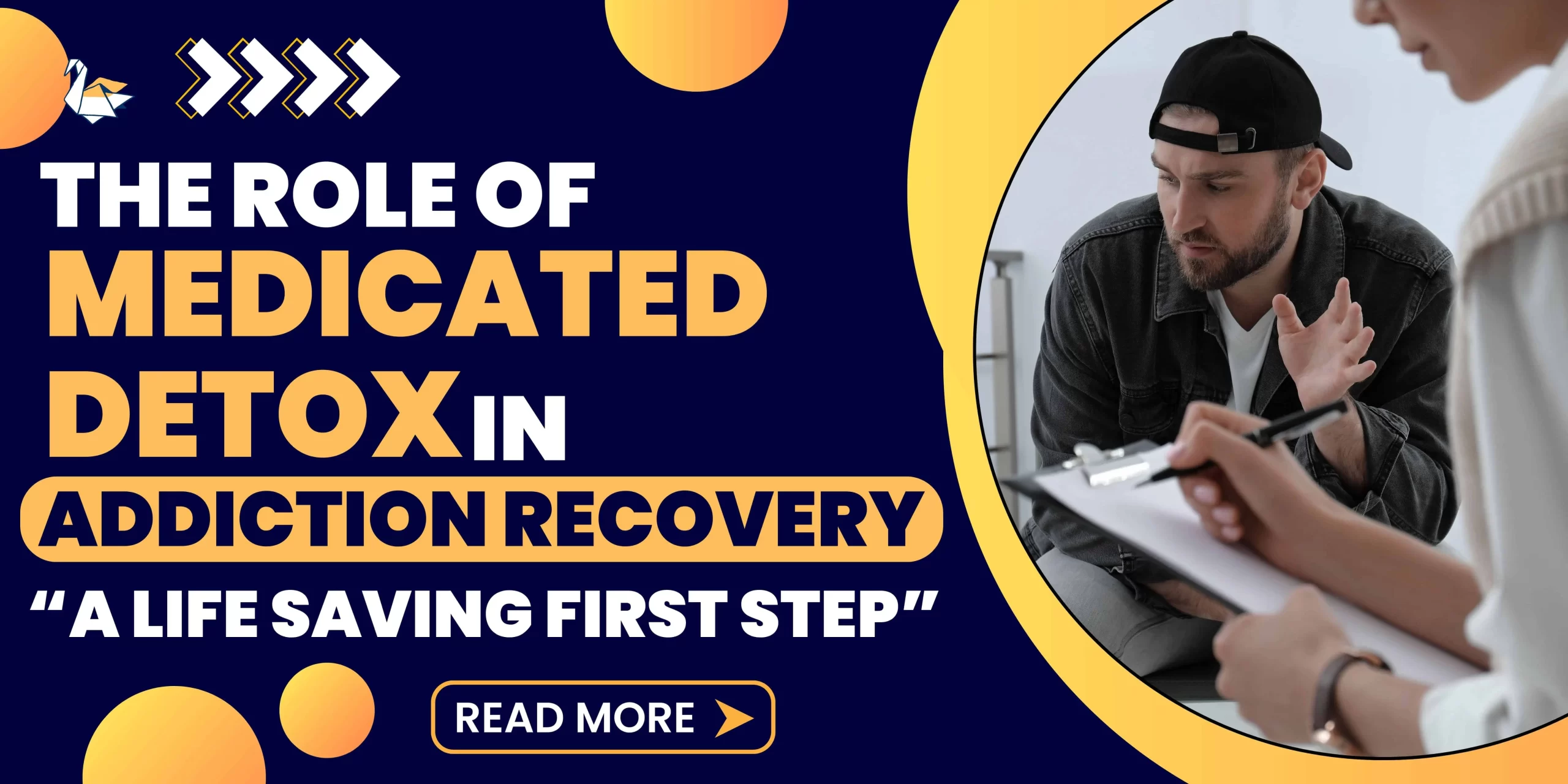The Role of Medicated Detox in Addiction Recovery: A Lifesaving First Step


Addiction is a chronic condition that is affecting millions of people worldwide. It has physical, emotional, and psychological consequences. However, if we put our deep resolve and mind to it, this problem can be handled. The journey to recovery is not at all easy. It requires comprehensive support systems. A very important element of addiction treatment is medicated detox. This is more commonly referred to as medical detoxification.
Now let us explain what medicated detox is. It is the foremost step in the recovery process. In a medicated detox program near me, the immediate and potentially dangerous withdrawal symptoms that are linked with stopping drug or alcohol use are given short shrift. At a medicated alcohol detox center near me a patient’s safety is the prime focus. Along with this he/ she also get a comfortable environment that promotes recovery.

Medicated detox comprises the supervised use of medications that will help a person manage the withdrawal symptoms that crop up when he or she abstains from using addictive substances like alcohol, opioids, benzodiazepines, or stimulants. Now, this phase is very important because prolonged substance use is known to alter the brain’s chemistry, and when this sudden cessation happens a person faces both physical and mental distress.
The body, which is adapted to the presence of drugs, goes into a state of shock. This reaction is known as withdrawal. It can range from mild discomfort to very serious complications such as hallucinations, and also death. The primary goal of medicated detox is to reduce these risks, stabilize the patient, and prepare him/ her for the next phase of treatment, such as therapy and counseling.
When you call our helpline, an admissions navigator is there to listen to you, answer any questions you have, and provide the support that you need—all 100% confidentially.
The efficacy of medicated detox comes from a deep understanding of how the addictive substances interact with your brain and body. Different drugs have an impact on different neurotransmitter systems. This leads to a dependency that includes both physical and psychological elements.
Each substance has a distinct withdrawal profile, and so the medicated alcohol detox centers near me ensure a safer and more effective transition from dependence to recovery.
Medicated detox offers numerous benefits to individuals who are starting their recovery journey. Here are some key benefits:

Perhaps the most critical benefit of medicated detox is that the patient does not have to go through potentially life-threatening withdrawal symptoms. Alcohol withdrawal can lead to seizures, and in some severe cases, even death. With medically supervised detox, serious complications are kept at bay. Even in cases where withdrawal symptoms are not life-threatening, they can be extremely uncomfortable and can lead to relapse if they are not managed in a proper way.
Withdrawal is a traumatic experience. It is marked by physical pain, nausea, insomnia, anxiety, and emotional distress. Medications that are used in detox help reduce these symptoms. This makes the process more bearable. When patients are more comfortable, they are less likely to leave the treatment prematurely and they are open to engage in the next phases of recovery.
When a person is in addiction recovery, he/ she has to control cravings. Some medications that are used in detox can help reduce cravings. This allows the patients to focus on the psychological and behavioral components of treatment and they are not overwhelmed by the urge to use substances.
Many individuals who suffer from addiction also deal with co-occurring mental health disorders, such as depression, anxiety, or PTSD. During detox, it’s common for psychiatric symptoms to emerge or intensify. A medically supervised detox can address these co-occurring issues, providing medications to stabilize mood, reduce anxiety, or treat other mental health conditions alongside withdrawal symptoms.
Medicated detox sets the stage for the next steps in recovery, which typically involve counseling, behavioral therapy, and sometimes long-term medication-assisted treatment (MAT). Detox alone does not cure addiction, but it helps individuals clear the physical dependence that can hinder their ability to engage in deeper therapeutic work. By removing the physical barriers to recovery, medicated detox gives patients the clarity and strength to fully participate in treatment.
We’ll instantly check the coverage offered by your insurance provider.
While detox is an essential first step, it’s important to recognize that it is just one part of the broader addiction treatment continuum. Detox alone is not sufficient to achieve long-term recovery. According to the National Institute on Drug Abuse (NIDA), detox should be immediately followed by comprehensive addiction treatment programs that address the underlying causes of addiction and teach coping strategies for maintaining sobriety.

Despite its numerous benefits, medicated detox is not without its set of challenges. Some individuals are not ready to use medications due to fears of becoming dependent on them. However, it’s vital to bear in mind that the medications used in detox are carefully managed and prescribed in doses designed to minimize withdrawal symptoms. They do not foster any kind of new addictions.
Then there are also societal stigmas that come up with addiction treatment. Some people are not ready to acknowledge their problems and come out to seek help.
Medicated detox plays an undeniably significant role in addiction recovery. It is your first step in the journey to be sober. When the withdrawal symptoms are safely managed and the patient is stabilized physically and emotionally, he/ she becomes confident. Thus, medicated detox opens the door to long-term recovery. However, it is vital to view detox as just the start of a comprehensive treatment plan. With the right combination of medical care, psychological treatment, and community support, people who struggling with addiction can successfully navigate their way to lasting recovery. Only when you take the first step, can you move towards your goal.
For the best-medicated detox, get in touch with Gorehabs.com. They have a tailor-made plan for everyone depending on their needs. With the right guidance, the journey towards sobriety will become easier and faster.